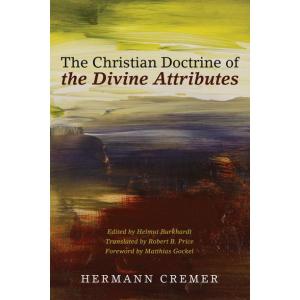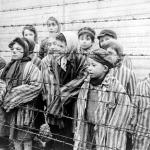Reflections on Hermann Cremer, The Christian Doctrine of the Divine Attributes, Chapter 4: Second Series: Divine Attributes Implicit in the Concept of God, Seen in the Light of Revelation: I. The Omnipotence of God (pp. 55-61)
If you have read this section, feel free to comment. If you have not, you may ask a question. Here I continue the discussion of Hermann Cremer’s book about the divine attributes. Here are my thoughts about his treatment of “The Omnipotence of God. (In about a week I will offer here my thoughts about the next section about God’s omnipresence.)
Apparently, Cremer thought God’s omnipotence is implicit in the very concept of God. Half a century later, philosopher Charles Hartshorne wrote “Omnipotence and Other Theological Mistakes” as part of the process theology project. I agree with Cremer against Hartshorne. Omnipotence is implicit in the concept of God. I also agree with Cremer that we only know God’s particular omnipotence through revelation and redemption.
On page 56 Cremer defines omnipotence: “The omnipotence of God is the superior strength of the God of redemption over the self-contained world-system in nature and history.” Also on page 56: “His power has no limits other than the will of his love or other than himself.”
I prefer Karl Barth definition that God’s omnipotence is his ability to do anything consistent with his nature. I also prefer Brunner’s terminology: “almighty” over “omnipotent.”
I have a few qualms about Cremer’s explanation of God’s omnipotence.
First, he seems to have some confusion about God’s freedom and ours. He says that there is no place for talk of God’s self-limitation. I disagree. His reason is that even when we do evil, our freedom to go against God’s will is granted by God’s power. To me, that does not wash. When we (humans) do evil, we are opposing God and for that to be possible God must restrict his power, the use of it. That I call God’s self-limitation.
I suspect Cremer is uncomfortable with talk of creaturely freedom as free will (Willkur in German). He settles on Freiheit, a German word for freedom that does not necessarily include free will. In English, generally, freedom implies free will. So there is a problem here in translation. Pannenberg also denied human Willkur, libertarian free will, allegedly “arbitrary” freedom.
I believe free will is necessary for doing evil but true freedom is becoming what God wants us to be. To me, there is a real distinction and difference.
On page 55 Cremer talks about God’s “self-realization.” “God acts in the self-realization of his love in absolute freedom.” Hegel talked about God’s self-realization. Many Christian theists oppose any talk of God’s self-realization or self-actualization. God is always fully who he is; he does not need to actualize or realize himself. What Cremer meant is a bit unclear.
Overall, I agree with Cremer’s thoughts about God’s omnipotence, but I do not think God’s voluntary self-limitation stands in any contrast or conflict with God’s omnipotence or freedom and I do not like talk of God’s self-realization. At least I don’t think I do. I am willing to reconsider.
God’s omnipotence means that God can do anything consistent with his nature. To me, that’s enough of a definition and explanation of God’s omnipotence. I’m not sure more needs to be said.
*Note: If you choose to comment, make sure you have read these pages. If not, you may ask a question. In any case, make sure your comment or question is relatively brief (no more than 100 words), on topic, addressed to me, civil and respectful (not hostile or argumentative), and devoid of pictures or links.*














